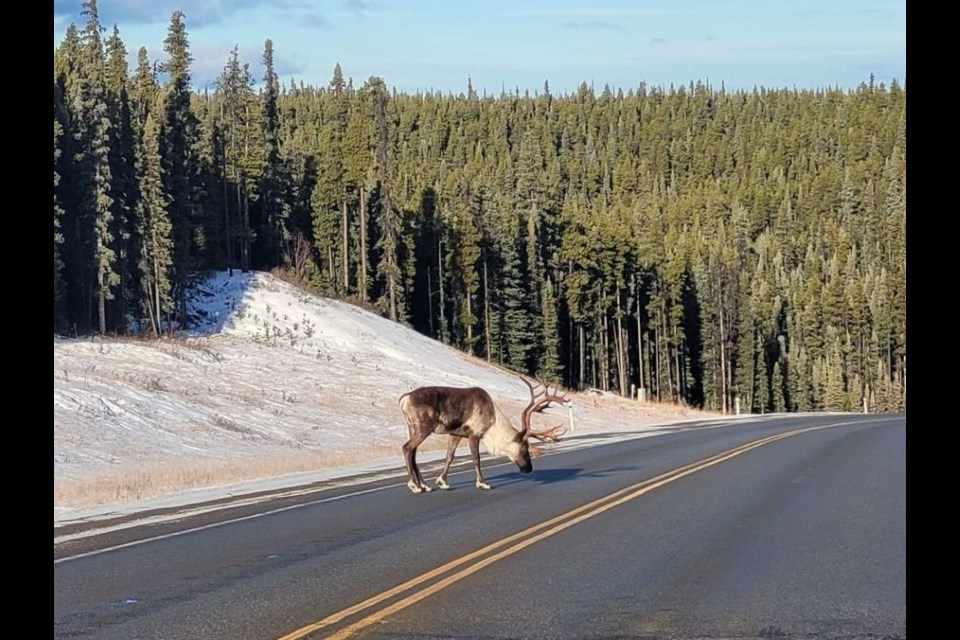Highway 40 is Alberta's deadliest highway for caribou. In just two years in the early 1990s, 32 of the animals were killed due to vehicle collisions.
That had already been at least two decades after the Aseniwuche Winewak Nation (AWN) started to notice an overall decline in the caribou.
The AWN started the Caribou Patrol Program in 2012 to take a more active role in caribou conservation and not just talk about it, said Stephanie Leonard, the AWN’s environmental co-ordinator. There are four herds in the area, three that are mountain caribou, which is an endangered species. The other, a boreal herd, is listed as a threatened species.
For the AWN, it’s about taking care of what matters most.
“They are a cultural keystone species. They are really important to the AWN culturally because the AWN believes in balance on the land, that they are related to all things: all things have their place,” Leonard said.
“Caribou are their brothers. Caribou are part of them.”
After those two devastating years in the early 1990s, the province started a program called Caribou Cowboys, which helped the caribou stay safe around and across Highway 40. That program didn’t last forever, however, so the AWN decided to pick it up where it was left off.
The Caribou Patrol has several facets to it, all aimed at the protection of caribou. There’s a public education and outreach component, and research and advocacy efforts.
Its most frontline aspect involves roving teams that conduct road patrols during critical times of the year during seasonal migrations or calving periods. Those patrols alert motorists to their presence and sometimes shepherd the animals to safety.
“If they have to, they will stop and either herd the caribou away from the road, or they'll warn traffic and herd them across the road where they're trying to go to keep them from coming back across the road, and just trying to do what they can to let people know that the caribou are there and get the caribou where they want to go safely.”
The Caribou Patrol also works to increase public safety by providing the public with wildlife road-sharing information and tips through its website at wildliferoadsharing.tirf.ca.
The AWN received an Emerald Award last year for its important work toward achieving environmental goals through this program.
There is no way to calculate how successful the program is. That said, there have been only seven caribou hit on the road in the years since Caribou Patrol has been on duty.
The largest success the program has had is with education, Leonard said. She encouraged everyone to report caribou sightings through a link on their website (CaribouPatrol.ca) as they occur. People can email [email protected] or they can call 1-877-274-9940 and leave a message.
Beyond that, their efforts are tireless to make caribou safer.
“We are still working at trying to come up with different ways to improve the program, to figure out a new way to do it,” Leonard said.
“We've helped the government look into overpasses and underpasses. We've looked at fencing. We're currently investigating something called a virtual fence, which is a box that's activated by light that emits flashing lights and sounds when there's a vehicle nearby. We're currently in the early stages of trying to see if that's a project that might help the caribou on this stretch of road.”
In the late ‘70s to early ‘80s, the AWN established moratorium on the hunting of local caribou, so long as the numbers were as low as they were.
“They still don't consider the numbers to be stable enough for hunting,” she said.
And so, the work of the Caribou Patrol continues.
Editor's note: The contact information for the Caribou Patrol has been updated.



